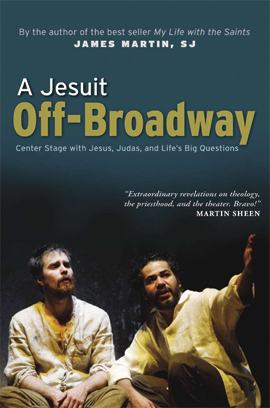“Catholic Administrators and Labor Unions,”
by William Droel and Ed Marciniak
Labor unions should be seen as making employees partners with management in carrying out the mission of Catholic institutions and ministries.
That’s the teaching of a little, 49-page, pocket- or purse-size booklet produced this year by the Chicago-based National Center for the Laity.
It’s a tract, really, that takes its foundation from an essay the late Ed Marciniak wrote in 1983.
Marciniak was a towering figure in the labor movement and Catholic lay movement in Chicago for more than 40 years, and Bill Droel – Marciniak’s colleague at the National Center for the Laity – has updated his work, adding recent references, particularly thoughts of Pope John Paul II.
Filled with facts
Catholic teachings with regard to labor begin with the dignity of every person and see collective bargaining as upholding and even furthering that dignity. This booklet makes the point over and over that union activity should be regarded as a necessary societal experience, not one to be feared or deplored.
Rather than management seeing labor organizing as a sign of failure on its part, the fact that employees want a union can be accepted as a development in the skills and the commitment of employees.
Church-related institutions are advised to model good labor relations by participating in good-faith bargaining; as the authors put it, “Preaching the gospel necessitates living the gospel.”
Workers cannot be exploited just because they choose to work for the church or a Catholic entity, a point the booklet makes clear:
“There is simply no basis in Catholic teaching for workers or employers to conclude that collective bargaining is excluded from the church, no matter how dedicated and holy are those workers or employers.”
Where unionizing and contract bargaining is sometimes perceived as an adversarial relationship, the authors say union activity can hold Catholic employers to high standards for transparency and thoughtfulness. In contentious issues, a contract allows policy – not personalities – to prevail.
Mutual benefits
What happens as well is creation of a partnership style of management – labor together with management – where a “respectful connectedness” is allowed to blossom. When union members and management partner, a mutual responsibility for the mission is created.
The booklet reminds:
“A union, in Catholic doctrine, is more than an economic agent to negotiate wages. It is supposed to be a community of persons who . . . claim responsibility, grow in the exercise of freedom and contribute to a spirituality of work.”
And it works to the benefit of all.
“A fair amount of evidence links humane management with profitability,” the booklet notes, “or, in the case of non-profits, other measures of excellence.”
Where some might fear the forming of a union as something that will drive the company or institution out of business, good managers instinctively understand that, especially in rough times, a company needs as many interested participants as possible, particularly from its employees. It is a mistake as well to conclude that managers are more invested in the institution than the employees, the authors warn.
Catholic doctrine demands that persons conform to the will of God by nurturing others. We sustain and spread faith in God through participation in family life and social groups, and doing so is not an option. “Catholics are obliged to join intermediate groups because they are essential to a relational (Trinitarian) expression of Christianity,” Droel and Marciniak note.
Voluntary groups are prized by Catholicism as a best harbor for freedom and human development, the thinking that brought John Paul II to say, “Unions are indispensable in society.”
Caveats expressed
Here are just a few take-aways for Catholic managers from a text full of take-aways:
· A labor tactic may be legal but not morally justified.
· Taking advantage of loopholes in the law will generate a hostile work environment.
· Getting reputable and competent advice for negotiating with a union is recommended, but bringing a union-busting firm on board will tarnish – perhaps permanently – a Catholic entity’s Catholic identity in the minds of all fair-minded people.
· Managers need to see unions as a vehicle rather than an obstacle.
While the intended audience for this work is Catholic managers, I would think the teaching about labor and management applies to every workplace, Catholic or secular.
In a reference appropriate for 2009, the booklet notes that while Catholic doctrine does not say every workplace must have a union, it does say that employees must be allowed to decide if they want to have a union.
“A Catholic (an employee, an administrator or a stakeholder) with an informed conscience can say, ‘This union is not right for this workplace,’ The same person cannot say, ‘Unions are bad.’ That some Catholics say, ‘Unions are bad or outdated,’ carries the same moral credibility as a Catholic who says, ‘Abortion is a matter of opinion or of individual choice.’”-- bz
“Catholic Administrators and Labor Unions” is available for $3.25. Check www.catholiclabor.org/NCL.htm for details.
Tuesday, June 9, 2009
Why Catholic managers shouldn't fear unions
Subscribe to:
Post Comments (Atom)



No comments:
Post a Comment